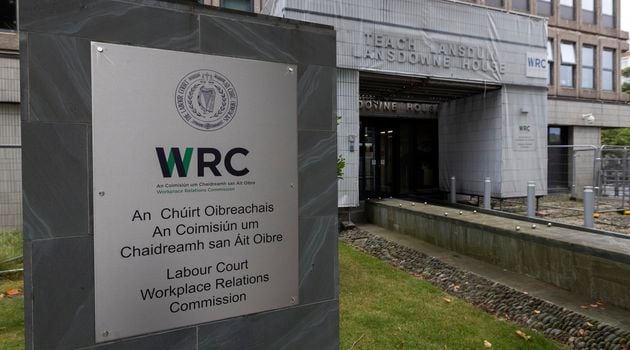[ad_1]

A call for new special leave arrangements in the Civil Service for staff experiencing miscarriage has been backed by delegates to the Association of Higher Civil and Public Servants (AHCPS) in Dublin.
Delegates were told there was a particular need to address the lack of support currently provided to staff who experienced a miscarriage early in a pregnancy.
âEverybody sitting in this room knows someone who has experienced miscarriage, but most of you wonât know who those people are,â Orna-Richella Maguire of the Revenue branch told the conference.
She said there are currently provisions in place to support staff who suffer miscarriage at stages where colleagues and managers are effectively aware of the pregnancy. Such leave is available to those staff who suffer a miscarriage after the 24th week of the pregnancy.
âWhat we are seeking, though, is an arrangement to recognise pregnancy before everybody has noticed it and it has become common knowledge,â she said.
[ Civil Service union condemns narrative that leaving work on time is âquietly quittingâ ]
The conference also backed motions that called for a doubling of the leave provided to those who are the victims of domestic abuse, the implementation of improved menopause policies and the introduction of special leave for staff experiencing fertility-related issues, something Ms Maguire said was impacting a growing number of the organisationâs members.
On pay-related issues, delegates backed motions on the right to disconnect and instructed the executive to lodge a claim for âan appropriate bonus payment for all officers, in all departments, who will carry out significant work on the 2026 Irish presidency of the EU at home and abroadâ.
Delegates were told there should be recognition of the fact staff involved in the presidency might âhave to get up at 4am in order to be in Brussels for a meeting at 2.30pmâ³.
AHCPS official Larry Dunne said civil servants working on the 2013 presidency have âhelped restore Irelandâs reputationâ after it had been undermined by the âwanton and criminal behaviour of those in the private banking sectorâ.
The organisationâs general secretary, Ciaran Rohan, said afterwards the association would speak with department officials regarding the scale of the claim but insisted the pursuit of a payment was not unreasonable.
[ Irelandâs top civil servants: who they are and what they earn ]
âWe donât get overtime, so we donât get anything for working additional hours and weâre not talking about an extra hour or two here. There can be a lot of 16- or 18-hour days when itâs intense negotiations and working over the weekends, for which thereâs no formal recompense, so we will certainly looking to have that addressed.â
The ongoing ban on civil servants being able to bring the majority of workplace grievances to the Workplace Relations Commission (WRC) is a legacy of the failure to recognise them as workers with rights rather than âoffice holdersâ, the conference was also told.
Backing a motion that pressed for a change to the rules, Seán Kirby of the Revenue branch told the conference that organising a strike in the Civil Service had been considered an act of treason until midway through the last century, with the very real possibility of prosecution.
[ Women outperform men in getting senior jobs in Civil Service, report finds ]
The antiquated âoffice-holderâ designation persists, he said. âThat is why we cannot bring cases on an awful lot of issues down to the WRC.
âAnd the Civil Service internal grievance procedures are some of the weakest grievance procedures you will see in any civil service in the European Union.â
[ad_2]
Source link


:quality(70):focal(1501x1170:1511x1180)/cloudfront-eu-central-1.images.arcpublishing.com/irishtimes/LGYLOQIUG5EOXNNQE65FJGLQGM.jpg?w=696&resize=696,0&ssl=1)
